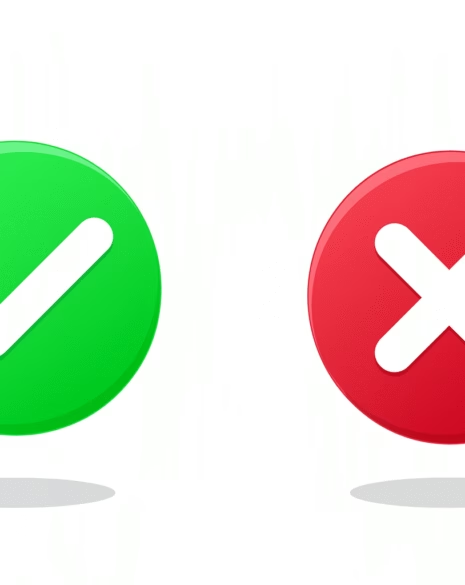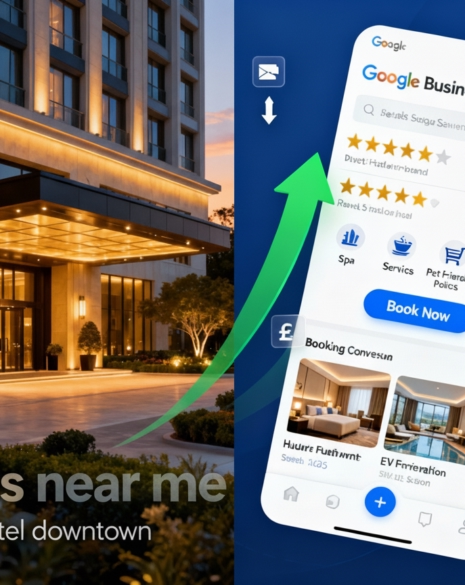For hotels, speed isn’t a technical bonus — it’s a guest expectation. In an industry where first impressions are made in milliseconds and decisions are swayed by convenience, a slow website can quietly undercut even the most compelling brand.
From search visibility to conversion rates, site performance is more than just a background metric. It directly impacts how guests find you, trust you, and book with you.
Let’s break down why hotel site speed matters so much — and what you can do to improve it without compromising on design.
Why Site Speed Matters for Hotels
The average traveller isn’t just browsing. They’re booking. And if your website takes too long to load, there’s a good chance they won’t wait around.
According to Think with Google, over half of mobile users abandon a site that takes longer than three seconds to load. That’s not just bounce rate — that’s lost bookings.
Google also uses speed as a ranking factor. Its mobile-first indexing system means performance on mobile isn’t optional — it’s central to how visible your hotel is in search.
Slow websites send signals to both users and search engines that something’s wrong. Fast ones, on the other hand, create trust, enable smoother bookings, and reduce drop-off rates.
Booking Friction: The Silent Conversion Killer
It’s not just about load time. It’s about momentum.
When your site stutters, guests hesitate. They wonder if the rest of the experience — your check-in process, your Wi-Fi, your customer service — will be just as slow. That hesitation is deadly in a competitive space.
Here’s what we typically see when site speed lags:
- Visitors drop off before reaching your booking engine
- Meta search traffic bounces back to Google or OTAs
- Paid campaigns bleed budget due to low landing page performance
- Mobile visitors — often making spontaneous bookings — give up entirely
Even minor lags can snowball into lost revenue, especially when the user is on a weaker connection or switching between apps.
Understanding Core Web Vitals (And Why Hotels Should Care)
Google’s Core Web Vitals are a set of performance metrics that measure how fast, stable, and responsive a site feels to real users. They’re part of the search algorithm — and more importantly, they shape user experience.
Here’s what each one tracks:
- LCP (Largest Contentful Paint): How quickly your main image or text loads. This is usually your homepage hero banner or heading.
- FID (First Input Delay): The time it takes for your site to react when someone clicks or taps.
- CLS (Cumulative Layout Shift): Whether elements move around while the page is loading (e.g. a button that shifts as you try to tap it).
If your hotel site fails these metrics, your organic visibility — and guest satisfaction — both take a hit.
Tools like PageSpeed Insights and GTmetrix can give you a Core Web Vitals breakdown, tailored to your actual user traffic.
How to Speed Up Your Hotel Website (Without Compromising Style)
You don’t need to strip back your site to make it fast. You just need to be smart about where performance bottlenecks are hiding.
Here’s where to focus:
- Optimise Your Images
Large, high-resolution photos are a must for showcasing your rooms — but they’re often the biggest performance killer. Use tools like Squoosh to compress images without losing quality, and convert to next-gen formats like WebP or AVIF. - Minimise Third-Party Scripts
Live chat tools, booking widgets, tracking codes — they add up. Audit which ones are essential and defer the rest. If your booking engine is slowing the page down, speak to your provider about optimised embed options. - Lazy-Load Non-Essential Content
Don’t force everything to load at once. Lazy-loading ensures that images or videos only load when they enter the user’s view, reducing the initial load time. - Upgrade Your Hosting or Add a CDN
If you’re relying on basic shared hosting, consider moving to a more performance-oriented provider or adding a CDN (Content Delivery Network) to reduce latency for international guests. - Run a Performance Audit Regularly
Your site will evolve — new plugins, new images, new widgets. Run a diagnostic using GTmetrix or PageSpeed Insights every few months to keep things lean.
Final Thoughts
In hotel marketing, experience starts before arrival — and often before a guest ever sees your lobby. It starts the moment your website loads.
Slow site speed doesn’t just annoy guests. It affects how they find you, how they feel about you, and whether they book. It affects how Google ranks you, how much you spend on ads, and how well those ads convert.
Performance is part of your brand. And speed is one of the few SEO fixes that can directly increase bookings.
If your site isn’t performing as fast as it should, it might be time to audit your infrastructure — or partner with someone who knows how.






